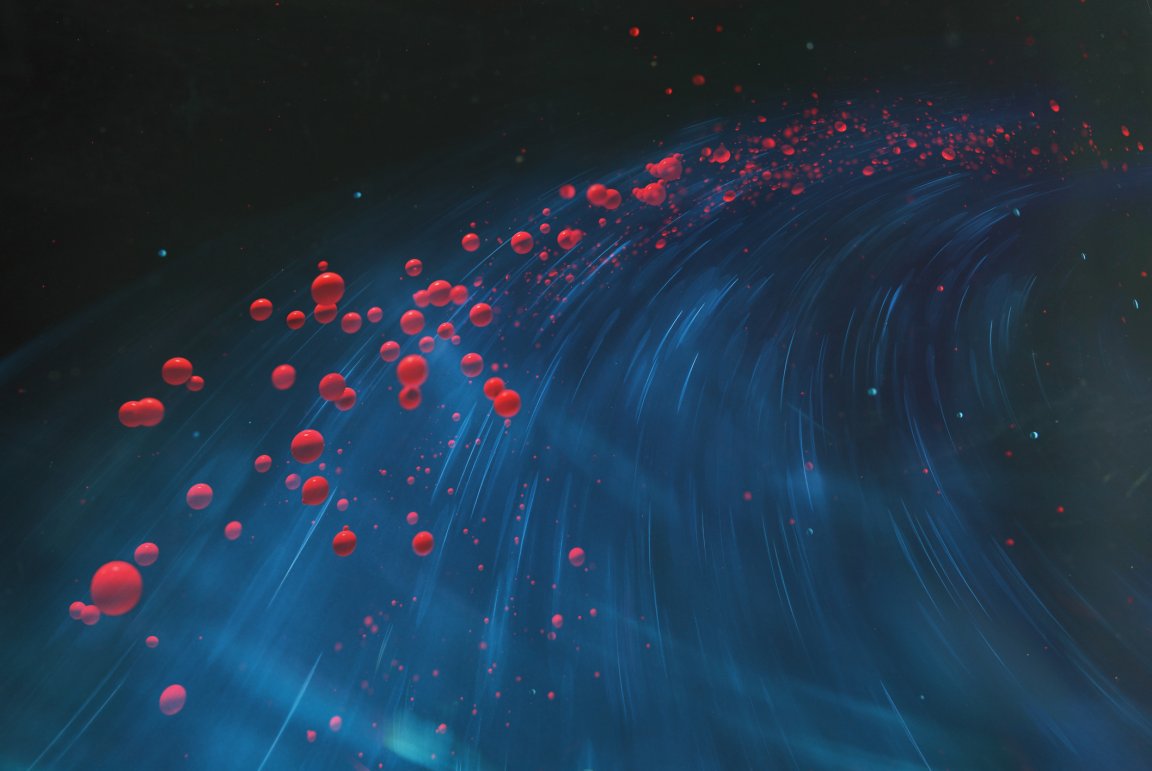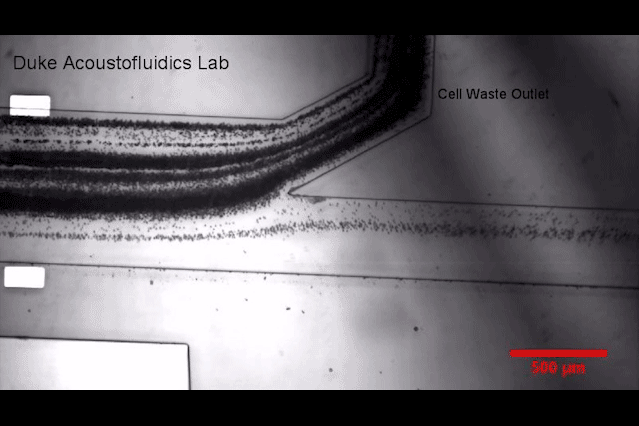
Analyzing Exosomes
Researchers have developed a way to diagnose serious medical conditions by eavesdropping on the body’s messages. In a collaborative research effort, scientists developed a new method to intercept exosomes, tiny messenger vesicles that carry RNA, proteins, or other important cellular molecules throughout the body. This work could be used to spot medical issues such as fetal abnormalities or cancer.
The team — including researchers from MIT, Duke University, Singapore’s Nanyang Technological University, and the Magee-Women’s Research Institute — isolated the exosomes from blood using sound waves and microfluidics, and aims to incorporate this technology into a portable device. This would change diagnosis in the field, eliminating the need for time-consuming and cumbersome centrifugation, and providing rapid results.
Previous research revealed that the contents of exosomes work as markers for disorders such as kidney disease, neurodegenerative disease, and cancer, among others. However, until now, exosomes could only be isolated through high-speed centrifugation, a process which demands almost 24 hours and a large, expensive machine that is not portable.

In previous research, the team was able to isolate rare, circulating tumor cells from a blood sample using sound waves, as the blood flowed through a tiny channel. This technique is gentler than other cell-sorting technologies, because it neither damages them physically nor requires tagging them with chemicals. In the new study, the team aimed to use the same technique to capture exosomes.
Faster, Easier Diagnosis
The original acoustic cell-sorting device consisted of two angled acoustic transducers and a single microfluidic channel. The researchers built a new device to isolate exosomes which utilizes two such units in tandem. As the blood sample moves through the first device, sound waves remove cells and platelets from it. After the cells and platelets are gone, the sample enters the second microfluidic unit, where higher-frequency sound waves separate exosomes from extracellular vesicles, which are slightly larger. It takes this new device less than 25 minutes to process an undiluted 100-microliter blood sample.
The team now hopes to use this technology to detect biomarkers that could reveal disease states. This work is jointly funded by a joint grant from the National Institutes of Health (NIH), earmarked for markers related to abnormal pregnancy. The researchers think the technology could also be used to help diagnose other health conditions.
“The new acoustofluidic technology has the potential to dramatically improve the process of isolation of exosomes and other extracellular vesicles from blood and other bodily fluids,” said Yoel Sadovsky, Magee-Women’s Research Institute director, in a press release. “This will add a new dimension to research into ‘liquid biopsy,’ and facilitate the clinical use of extracellular vesicles to inform the physiology and health of organs that are hard to access, such as the placenta during human pregnancy.”